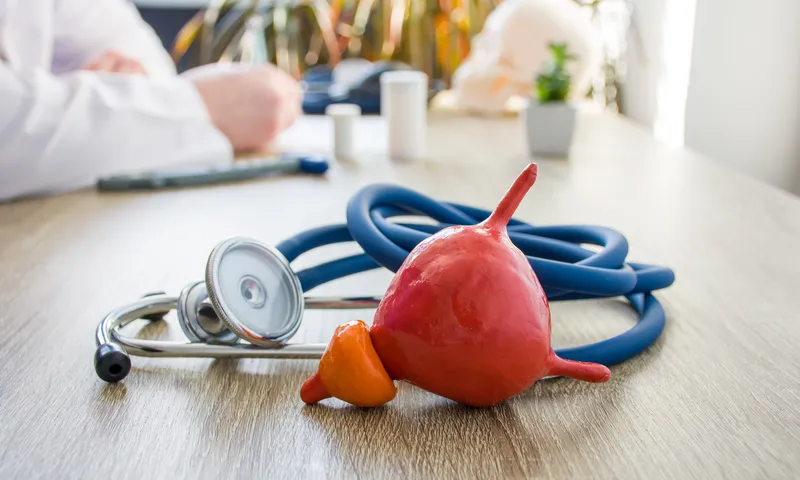Can an Enlarged Prostate Cause Bowel Problems

Did you know the prostate frequently becomes enlarged in males over 50? When this happens, medical professionals speak of Benign Prostatic Hyperplasia (BPH). This small gland, situated around the male urethra, is essential in supporting semen production and fertility. Even though BPH not cancerous, it comes with a variety of uncomfortable symptoms that can significantly impact a man’s quality of life, including frequent urination, difficulty emptying your bladder, and sudden, strong urges.
Since BPH has such a profound effect on the urinary system, some people may wonder whether an enlarged prostate can cause bowel problems. This article addresses this common question, along with causes and risk factors, as well as effective treatment methods for an enlarged prostate.
Prostate Enlargement: Causes and Risk Factors
As mentioned, an enlarged prostate is widespread among older males, making age the most crucial risk factor for this condition. Notably, by age 60, half of all men in this age group will be affected. Besides age, decreasing testosterone levels, family history, and lifestyle factors such as a lack of physical activity, obesity, smoking, and heavy drinking can also influence your risk of developing an enlarged prostate. Finally, chronic health conditions like diabetes, heart disease, and high blood pressure can also contribute to BPH.
Can an Enlarged Prostate Cause Bowel Problems?
When researching this topic, you will mostly find listed symptoms that are related to the urinary tract. However, since the prostate, bladder, bowels and rectum sit so close together, wondering whether an enlarged prostate can cause bowel movement problems is only natural.
Although urinary issues are most common, an extremely enlarged prostate and significant urinary retention can cause bowel problems. Affected individuals sometimes report discomfort during bowel movements, a false sense of fullness in the rectum, or difficulty completely emptying their bowels. Constipation is also listed as a side effect for some BPH medications and can therefore further contribute to this issue.
Managing an Enlarged Prostate
Men with an enlarged prostate are often prescribed medications that are designed to improve everyday symptoms and shrink the prostate over time. Flomax MR and Proscar are two examples that are usually combined with other drugs, as determined by your healthcare provider. These treatments should be used in conjunction with lifestyle adjustments, including reducing caffeine and alcohol, limiting fluid intake before bedtime, engaging in regular physical exercise, and losing weight. Healthy habits like these may also reduce your risk of developing an enlarged prostate in the first place and slow the progression of the condition.
If BPH is more advanced or the above treatment methods and lifestyle adjustments are ineffective, additional options are available to relieve your symptoms. These include minimally invasive procedures that open the urethra, as well as surgeries that can remove or reshape the prostate.
As with most conditions, an enlarged prostate is best treated when caught early. This condition should also always be properly diagnosed to rule out more serious health issues that might cause similar symptoms, such as prostate cancer. Working closely with your doctor will help you find the best treatment method for you and improve your quality of life.
IMPORTANT NOTE: The above information is intended to increase awareness of health information and does not suggest treatment or diagnosis. This information is not a substitute for individual medical attention and should not be construed to indicate that use of the drug is safe, appropriate, or effective for you. See your health care professional for medical advice and treatment.


